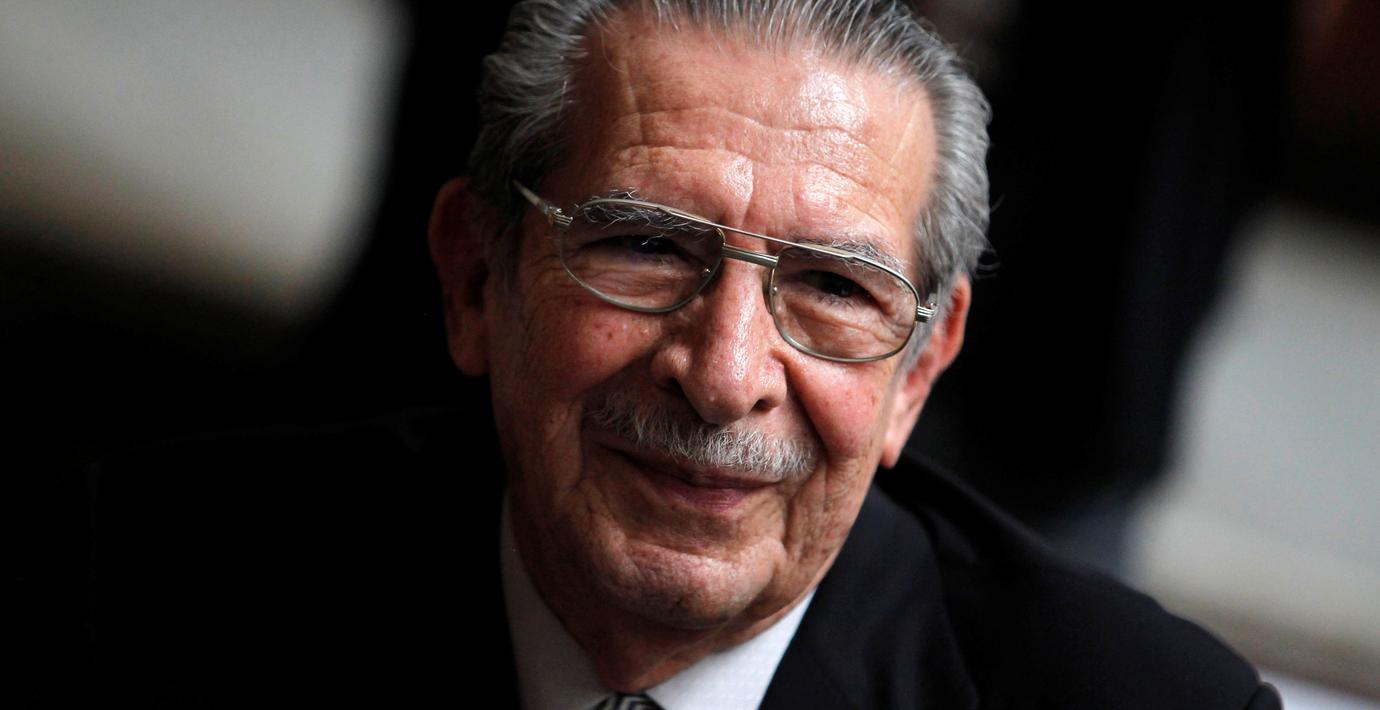
Guatemalas tidigare diktator Rios Montt är död
Den tidigare militärdiktatorn Efraín Rios Montt är död. Rios Montt styrde Guatemala mellan 1982 och 1983 och dömdes 2013 för folkmord under inbördeskriget. Domen upphävdes dock endast en vecka senare, skriver Reuters.
Han blev 91 år gammal.
Efraín Ríos Montt
Wikipedia (en)
José Efraín Ríos Montt (Spanish pronunciation: [efɾaˈin ˈri.os ˈmont]; born June 16, 1926, died April 1, 2018) was a Guatemalan career military officer and politician; he served as President of Guatemala from 1982 to 1983. He was an army general during his time in office, following a coup d'état in 1982. His military government practiced large-scale violations of human rights and spread counter-insurgency terror among the peasantry. It constituted a brief, but terrible episode in the Guatemalan Civil War, which lasted until 1996.
A general in the Guatemalan Army, Ríos Montt came to public office through a coup d'état on March 23, 1982. He was overthrown by his Defense Minister, Óscar Humberto Mejía Victores, in another coup d'état on August 8, 1983. In the 2003 presidential elections, Ríos Mont unsuccessfully ran as the candidate of the Guatemalan Republican Front (FRG). In 2007 Ríos Montt returned to public office as a member of Congress, gaining prosecutorial immunity. He was protected from a pair of long-running lawsuits alleging war crimes against him and a number of his former ministers and counselors during their term in the presidential palace in 1982–83. His immunity ended on January 14, 2012, when his term in office ended. On January 26, 2012, Ríos Montt appeared in court in Guatemala and was formally indicted for genocide and crimes against humanity.
Born in Huehuetenango, Ríos Montt is one of the most controversial figures in Guatemala. Two Truth Commissions, the REMHI report, sponsored by the Roman Catholic Church, and the CEH report, conducted by the United Nations as part of the 1996 Accords of Firm and Durable Peace, documented widespread human rights abuses committed by Ríos Montt's military regime. These included widespread massacres, rape, and torture against the indigenous population in what has been called a Guatemalan genocide. Ríos Montt say there was no government-ordered genocide, and that abuses were the result of a long, violent civil war. At the time Ríos Montt had close ties to the United States, receiving direct and indirect support from several of its agencies, including the CIA.
Ríos Montt is best known outside Guatemala for being tried for heading a military regime (1982–1983). It was held accountable for defeating the guerrillas through what was known as the "guns and beans" campaign, telling the people "If you are with us, we’ll feed you, if not, we’ll kill you." Guatemala's 36-year civil war ended with the signing of a peace treaty in 1996. The civil war pitted Marxist rebels against the Guatemalan state, including the army. Huge numbers of civilians, both indigenous Mayas and mestizo Ladinos, were caught in the crossfire. Up to 200,000 Guatemalans were killed and declared missing during the long conflict, making it one of Latin America's most violent wars in modern history.
Indigenous Mayas suffered disproportionately during Ríos Montt's rule, and it is documented that his government deliberately targeted thousands of indigenous people since many were suspected of harboring sympathies for, supporting, or participating in the guerrilla movement. Under the Cold War-era strategy of containment the Guatemalan state sought to eliminate the spread of Communism inside its borders. The UN-backed Historical Clarification Commission found that the resulting counterinsurgency campaign, significantly designed and advanced during Ríos Montt's presidency, included deliberate "acts of genocide" against the indigenous population.
On 28 January 2013, judge Miguel Angel Galves opened a pre-trial hearing against Ríos Montt and retired General José Mauricio Rodríguez Sánchez for genocide and crimes against humanity, in particular the killings of 1,771 Maya Ixil Indians in 1982 and 83, including children. On 10 May 2013, Ríos Montt was convicted of genocide and crimes against humanity, and was sentenced to 80 years imprisonment. On 20 May 2013, the Constitutional Court of Guatemala overturned the conviction. His retrial began January 2015. A Guatemalan court has ruled he can stand trial for genocide and crimes against humanity, but he cannot be sentenced due to his age and deteriorating health conditions.
Omni är politiskt obundna och oberoende. Vi strävar efter att ge fler perspektiv på nyheterna. Har du frågor eller synpunkter kring vår rapportering? Kontakta redaktionen